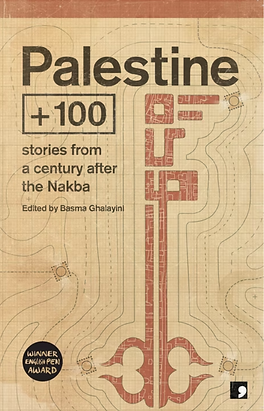
Arabic literature as World Literature
How, where and why does Arabic literature enter the world republic of letters? When and why does the “world” become interested in Arabic literature? This seminar will introduce students to one of the most central theories of the 21st century, namely, World Literature, via the position of Arabic literature in this scholarly corpus. Alongside reading theories of world literature that follow the circulation of “global” texts, we will read examples from Arabic novels and poems that received international status, and we will understand the factors that played into their global reception. Students will experiment with tools from Digital Humanities that help mapping the global dispersion of Arabic literature in the world. Each student will develop their own project that would examine a case of cultural trespass of an Arabic text of their choice

The Future in Israel/Palestine in Literature and Art
What place does the future hold in Arab culture throughout the ages? Can we imagine today a future that is radically different from the present in which we live in Israel/Palestine? This course will begin with the history of the futurist genre throughout Arabic literature. Then, we will turn to read and watch the proliferating literary and art works from the 21st century that try to offer alternatives to the current political situation in the region. We will read futurist short stories, poems, and novels and look at futurist paintings, photographs and movies from the Arab world (with an emphasis on Palestinian culture from Palestine and the diaspora and Arab-Jewish writers), alongside reading theory about the futurist genre to understand what is unique about it as well as theories that characterize how the conception of time changes throughout history.
Each student will be asked to select and research one contemporary futurist work of art/literature, and by the end of the course we will try and curate an exhibition with the collaboration of Beit Hagefen/Karma

The Concept of Return in Modern Arabic Literature
The yearning to return to the homeland is indicative of the major moves of modernity: immigration, exile, nationalism and colonialism. Together we’ll read novels, essays, and poems of exiles and returnees such as Aimé Césaire, Tayeb Salih, Mourid Barghouti, Ghassan Kanafani, Hisham Matar and more, asking the question whether or not one can go back – in time or in space

Crossing the lines: Intercultural Exchange between Arabic and Hebrew
This seminar examines literary trespass of geographical, national, and linguistic borders, when a writer adopts a canon, identity, or history that is not their “native” one. We start with linguistic trespass – Jewish writers who write in Arabic and Palestinian writers who write in Hebrew; continue with cultural trespass – when a Jew passes as an Arab and an Arab passes as a Jew; and conclude with historical trespass – when the national trauma is represented by the “Other.” Authors we’ll read include Anton Shammas, Sayed Kashua, Samir Naqash, Almog Behar, Rabai al-Madhoun, and Elias Khoury

Utopia or Dystopia: Revolutionary Literature in the Arab Spring
Does literature have a role in shaping political revolutions? Or rather, do political revolutions shape literature? This course will examine both questions by looking at the poetry and fiction of the Arab spring that contributed to a revolutionary climate on the one hand, and the ways revolutions prioritize specific genres and thus foster new literary phenomena, on the other hand. Together we will listen to spoken word performances, read novels and poetry, watch documentary movies, and analyze street art from Egypt, Syria, Iraq, and elsewhere the uprisings have shaped a certain aesthetics. We will focus on notions of utopia/euphoria alongside those of dystopia/disillusionment as we learn the role culture has in voicing political demands

Fact or Fiction: The Genre of Autobiography
We often read autobiographies for their truth and history, but they tend to turn humans into character, fact into fiction. In this seminar we will read autobiographies that blur the differences between real and fictional—for example by Edward Said, Fadwa Tuqan, Taha Hussein, and Mohamed Choukri. We will learn the particular evolution of the genre in the Arab world, while reading literary theory that tries to define fictional worlds, for example, by Roland Barthes, Salman Rushdi, and Paul de Man.